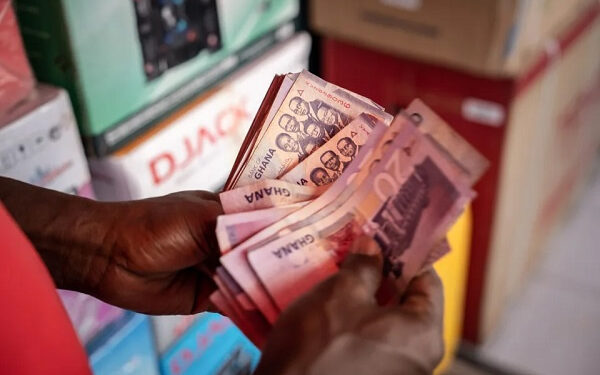Ghana Cedi shows signs of resilience as depreciation slows against hard currencies
Market analysts are now anticipating a mixed performance for the cedi against major foreign currencies in the upcoming week.
- Advertisement -
The Cedi exhibited signs of resilience in the past week, with the pace of its depreciation against the US dollar and other hard currencies (euro and pound) slowing down on the retail market. The local currency experienced a modest loss of only 1.28%, providing a glimmer of hope for the Ghanaian economy amidst recent exchange rate volatility.
Additionally, the cedi experienced a depreciation of 2.60% against the pound and a 2.01% weakening against the euro. While these figures still indicate a decline in value, the slower pace of depreciation suggests a potential shift in market dynamics.
- Advertisement -
This positive development followed the intervention of the Bank of Ghana, which injected approximately $14.5 million into the spot market to provide support for the cedi. Moreover, an additional $20 million was allocated to Bulk Oil Distributing Companies in an effort to alleviate demand pressures for the US dollar. However, despite these measures, market forces continue to exert upward pressure on the greenback’s value.
- Advertisement -
Market analysts are now anticipating a mixed performance for the cedi against major foreign currencies in the upcoming week. The ongoing implementation of the International Monetary Fund (IMF) program is expected to play a significant role in easing demand for the local currency. As Ghana’s economic recovery program takes shape, the country’s commitment to fiscal discipline and structural reforms is likely to inspire confidence among investors and reduce pressure on the cedi.
Just a few weeks ago, the cedi faced severe pressure, experiencing a nearly 9.0% depreciation in value on the retail market. However, the pace of depreciation has since slowed down, resulting in a year-to-date loss of slightly above 12% against the US dollar. In contrast, on the interbank market, the cedi has seen a larger depreciation of about 20%. These fluctuations highlight the challenges faced by the currency and the importance of managing exchange rate stability.
- Advertisement -
Last week, the World Bank Country Director to Ghana, Pierre Laporte, made an encouraging announcement, stating that the Bretton Woods institution is likely to disburse $300 million to Ghana in September 2023 as the first tranche of approximately $1.1 billion in budget deficit assistance under the International Monetary Program. This news has instilled hope among market watchers and experts who believe that this injection of funds will help alleviate pressure on the cedi and support the country’s overall economic stability.
It is worth noting that Ghana took the proactive step in December 2022 to suspend payments of external loans, a strategic move aimed at restructuring its debt and significantly reducing foreign outflows. This prudent decision has played a crucial role in mitigating potential financial risks and bolstering the country’s economic resilience.
As Ghana continues to navigate its economic recovery journey, the trajectory of the cedi remains a critical indicator of stability. While recent developments have shown signs of improvement, sustained efforts and careful management will be required to ensure the cedi’s long-term stability and promote a conducive business environment in the country.
The Ghana cedi’s recent slowdown in depreciation against the US dollar on the retail market brings a glimmer of hope for the Ghanaian economy. With ongoing interventions from the Bank of Ghana and the anticipated impact of the IMF program, market experts predict a mixed performance for the cedi in the coming weeks. The World Bank’s forthcoming disbursement and Ghana’s strategic debt restructuring efforts are expected to alleviate pressure on the cedi and contribute to overall economic stability. As Ghana progresses on its economic recovery path, close attention must be paid to managing the cedi’s volatility and fostering an environment conducive to sustainable growth.
Source: Norvanreports
- Advertisement -


